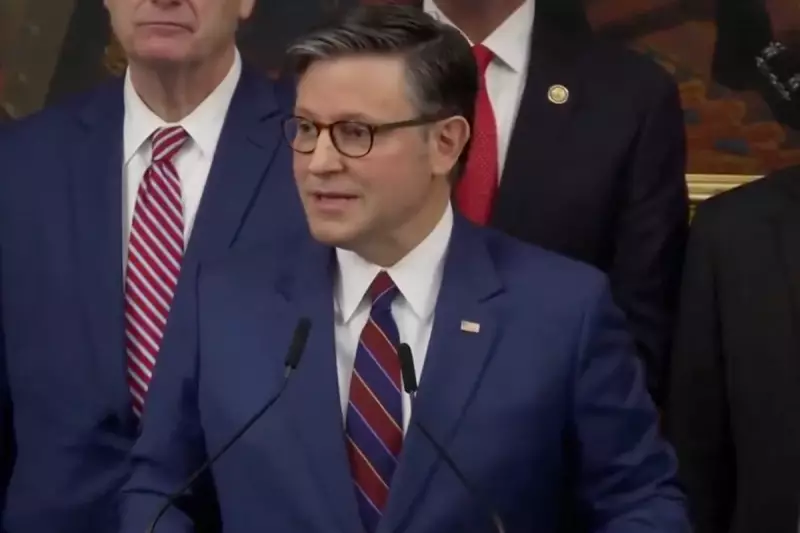
In a statement that has sent shockwaves through American political circles, House Speaker Mike Johnson has openly speculated about the possibility of Donald Trump serving an unprecedented three terms as President of the United States.
Constitutional Concerns Raised
The controversial remarks came during a recent interview where Johnson, a key Republican figure, suggested that Trump's first term was "unfairly interrupted" and therefore shouldn't count toward the constitutional two-term limit. This interpretation directly challenges the 22nd Amendment, which explicitly states that no person shall be elected to the office of President more than twice.
Political Fallout and Reactions
Legal experts and political opponents have been quick to condemn Johnson's statements. Constitutional scholars emphasise that the amendment makes no exceptions for terms that politicians might consider "incomplete" or "disrupted." The suggestion has drawn criticism from across the political spectrum, with many viewing it as an attempt to undermine foundational democratic principles.
What the 22nd Amendment Actually Says
- No person shall be elected to the office of President more than twice
- No person who has held the office of President for more than two years of a term to which some other person was elected President shall be elected to the office more than once
- This article shall not apply to any person holding the office of President when it was proposed by Congress
Broader Implications for American Democracy
This isn't the first time such ideas have surfaced in Trump-aligned circles. Some supporters have previously floated similar theories, though rarely from someone of Johnson's stature and position. The House Speaker's comments come at a particularly sensitive time, as Trump campaigns for what would constitutionally be his second term if elected.
Political analysts suggest these remarks reflect deeper tensions within the Republican Party about leadership and succession. The controversy also highlights ongoing debates about the strength of American democratic institutions and whether they can withstand pressures from movements that sometimes appear to challenge established norms.
As the 2024 election approaches, Johnson's comments have added fuel to an already heated political environment, raising fundamental questions about constitutional adherence and the future of presidential term limits in the United States.





